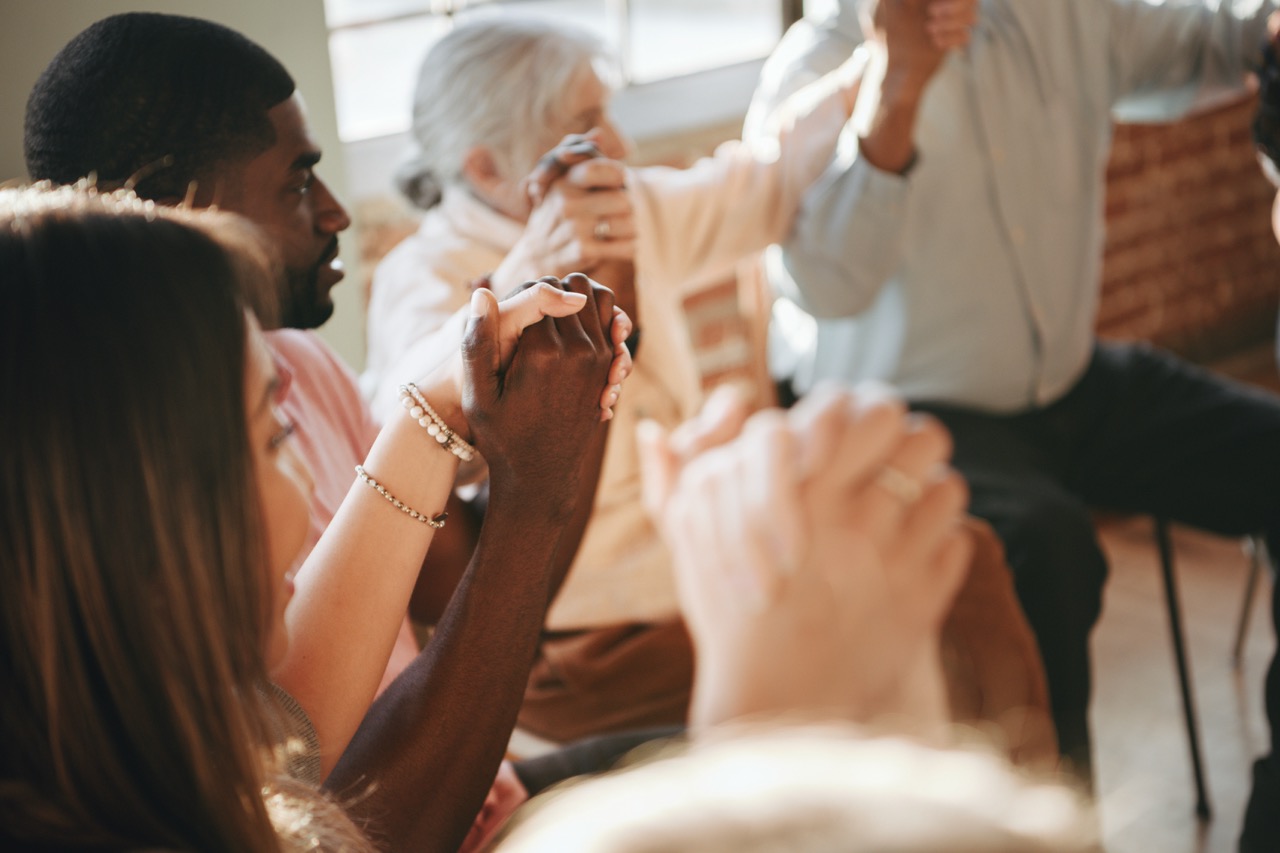Church and Community Partner with Bair in Foster Care
A How-To Guide
Across the US, over 400,000 kids are in foster care, longing for safe and loving homes. It is a staggering figure, highlighting a crisis of care. Many factors contribute to it, and we, as a society, are challenged to respond to this overwhelming need. This is where the power of community and faith truly shines: when church and community partner with Bair in foster care, remarkable things happen. Through collaborative efforts, lives are changed, not just of children, but of families and communities alike.
The Bair Foundation is not only an organization, but a lifeline dedicated to aiding children and families in crisis. When partnering with churches, we extend our reach beyond traditional methods. If you want to see one of our recruiters at your church all you have to do is reach out!
A Shoulder to Lean On: The Church’s Role
Faith gives kids a sense of security, hope, and purpose, even when life gets tough. Knowing they are loved by God helps them build confidence and resilience, so they can face challenges with courage. It also teaches them kindness, gratitude, and the importance of helping others—values that shape them into compassionate and grounded individuals. Plus, being part of a faith community provides a strong support system, surrounding them with people who encourage and uplift them.
In a world full of uncertainties, faith gives kids something solid to hold onto, reminding them they are never alone. The church is called to care for those in need, offering not just material but emotional and spiritual support, playing a vital role in strengthening the foster care system. With The Bair Foundation, they create a network of care that truly impacts the lives of these vulnerable children.

Supporting Foster Families – It Takes A Village
Fostering can be challenging and church and community partner with Bair in foster care, they become pillars of strength. This can look like:
- Providing meals: Imagine the relief for a foster family welcoming a new child when they don’t have to worry about dinner. Providing meals lightens the load.
- Offering respite care: Sometimes foster parents need a break to recharge. This is where respite care provided by trained and vetted volunteers becomes invaluable, giving foster parents much-needed time for themselves.
- Creating support groups: Sharing experiences with those who understand can make a world of difference. Churches can host support groups that provide a space for foster families to connect, share their burdens, and draw strength from each other.
- Simple Encouragement. Do you have the gift of encouragement? Consider a card-writing campaign where you share a card with encouraging thoughts, Bible verses and quotes to foster families. The gift of words can be the highlight of a foster parent’s day and a motivation when things get hard. Parenting is hard work and a sweet reminder that the hard work is worth it!
Beyond practical help, simply being there for these families, offering friendship and a listening ear, provides a network of understanding and support.
Mentoring and Guidance
Young lives in the foster care system often crave stability and positive role models. Here is where mentors from the church can provide stability and guidance for a child, walking alongside them, and offering advice. It’s about being that consistent, supportive presence that every child deserves. And it’s not just about direct mentoring of the youth, but equipping families with parenting skills through workshops and counseling.
Consistency is one of the most powerful gifts foster parents can offer their foster children. It’s not about having all the right answers or knowing exactly what to say—it’s about showing up, day after day, with steady, reliable love and support. Trust is built in those quiet moments of simply being present and listening. Not rushing this process offers the sense of safety and belonging. Consistent actions—offering a warm meal, a kind word, or just sitting together in the hard moments—that slowly heal hearts and remind these children they are not alone.
Advocacy and Awareness – Speaking Up
Churches can advocate for change, raising awareness about the foster care system and encouraging others to become foster parents. Events like Stand Sunday, observed on the second Sunday of November each year, are initiatives led by Christian Alliance for Orphans (CAFO) to highlight this need.
Tangible Ways To Help
Everyone can do something. While becoming a foster parent is an amazing act of service, it’s not the only way to contribute. Churches and community members can participate by:
- Donating to the Bair Foundation goes straight to the kids under our parents’ care. Making a significant impact on a child’s life.
- Volunteering: Churches can organize donation drives for necessities like clothing, toys, and school supplies for foster youth.
When churches join hands with The Bair Foundation, they form a bond that transforms lives. Here is where the real difference is made.
Want to know how you can create an effective plan to engage your community, church, and friends to support foster children and the families who care for them? As a partner with CAFO (Christian Alliance for Orphans), we believe in living out the James 1:27 mission to care for orphans. Today’s foster children are modern-day orphans, and it takes the whole community to surround them with love and stability.
At The Bair Foundation, we partner with local churches and community organizations to build networks of support for foster families and vulnerable children.

Recommended Reading:
More Than Enough by Jason Weber offers a powerful roadmap for building a foster care movement within your community. Through real-life examples and practical steps, Weber challenges churches and organizations to collaborate until there are more than enough foster families and resources to meet the need.
Everyone Can Do Something by Jason Johnson emphasizes that every individual and church has a role to play in caring for foster children. From small, practical steps to large-scale initiatives, Johnson provides a strategic guide for mobilizing communities around foster care.
At Bair, we strive to put these principles into action by working closely with churches and community partners to create sustainable support systems for foster families. Everyone truly can do something to make a difference.
FAQs about Church and Community partnerships with Bair in foster care
What is the Bair Foundation model of care?
The Bair Foundation uses a structured intervention model that blends trauma-responsive methods, emphasizing a family-based setting rather than institutional care. Central to its mission is reintegrating children with their biological families whenever viable while also supporting adoption as an option.
What is it called when you age out of foster care?
Aging out of foster care is often referred to as “emancipation.” This transition marks the time when young adults are no longer under the care and custody of the foster care system. The age of emancipation varies by state, but it typically occurs at 18 or 21.
Can foster parents make you go to church?
In many cases, the court allows biological parents to retain the right to direct their children’s religious upbringing. This means foster parents, while providing temporary care, may not have the authority to impose their religious beliefs. Instead of making children attend services, foster families can expose youth to their faith in everyday life, creating a positive and welcoming environment.
One of Bair’s foster parents, who also serves as an active pastor, creates a powerful foundation of faith and affirmation for the children who come into his and his wife’s home. Every day, they lead the children in speaking life-giving affirmations: “I am created by God. I am loved. I matter. I am fearfully and wonderfully made. Mommy loves me. Daddy loves me. I am smart. I am a reader. I can be anything I want to be.” These words become more than a daily routine—they help instill a deep sense of value and purpose.
In the midst of difficult circumstances, faith offers these children something solid to stand on, a reminder that they are more than their current struggles. It builds confidence, resilience, and hope for the future.
Challenges
Of course, like any collaborative effort, there will be challenges. Addressing common misconceptions and educating congregations is vital. Not every child is “Damaged Goods.” Children enter foster care through no fault of their own. Labeling them can be detrimental to their development and well-being. It’s about understanding the trauma they’ve been through and showing them love, patience, and acceptance.
Going in with the attitude of “saving” these children often does more harm than good. It is essential to come alongside with a heart to support, nurture, and guide. Remember, they are not projects; they are children. Bair’s National Clinical Director, Mandy Anderson, is passionate about the mission of foster care and how parents can step in the gap when bio families can’t, “Foster care is forever care. Our commitment to child well-being is forever.” At Bair we offer TBRI (Trust Based Relationship Intervention) training, we learn there are FOUR needs to Earned Secure Attachments: One, give care, two, receive care, three, negotiating needs, and four, self-regulation.
Reminding parents that this is a marathon, not a sprint. Building trust and strong bonds with children from difficult pasts requires time. Instant results are not realistic and sustainable. It’s through consistent effort and commitment to be there, no matter what.
One of our foster parents in Erie had this to say when asked what advice they’d give someone thinking about fostering, “Don’t expect it to be easy or magical. Loving people is hard work. Rewarding, but hard work. So, hang in there and be brave—It may not turn out like you pictured, but this is what God’s kingdom is all about: bringing in orphans and making them yours.”

Every Act Matters
Every act of kindness matters because, for children who age out of the foster care system without a family, the risk of homelessness is heartbreakingly high. When survival becomes a child’s top priority, pursuing education often falls to the wayside. Nationally, only 50% of youth in foster care graduate high school, compared to 86% of their peers. The gap widens even further when it comes to higher education—only 4% of former foster youth obtain a college degree.
Imagine the collective impact we can make when we come together, driven by a mission of love, compassion, and unwavering support for these children. When churches and communities partner with The Bair Foundation, every prayer, every meal provided, every hour volunteered makes a difference. Together, we have the power to change lives. Giving kids the promise of a future where they don’t need to worry about where they’re going to sleep tonight, when their next meal will come, or if anyone cares.
We care. You care. Let’s make a difference together.
Become a Foster Parent with The Bair Foundation
Partnering with Bair is an incredible way for the church and community to work together for good. Each step, no matter how small, can create ripples of change, offering hope, and healing, demonstrating God’s love in practical and impactful ways. This is the heart of what it means to truly love our neighbors when church and community partner with Bair in foster care to support vulnerable children and families.
Find out what office’s service area you’re in by filling out this contact form.
There are over 400,000 children in U.S. foster care and over 100,000 children available for adoption.
We need your help to stop horrific child abuse and neglect. We are doing all we can, but we just can’t do it alone.
Become a Foster parent